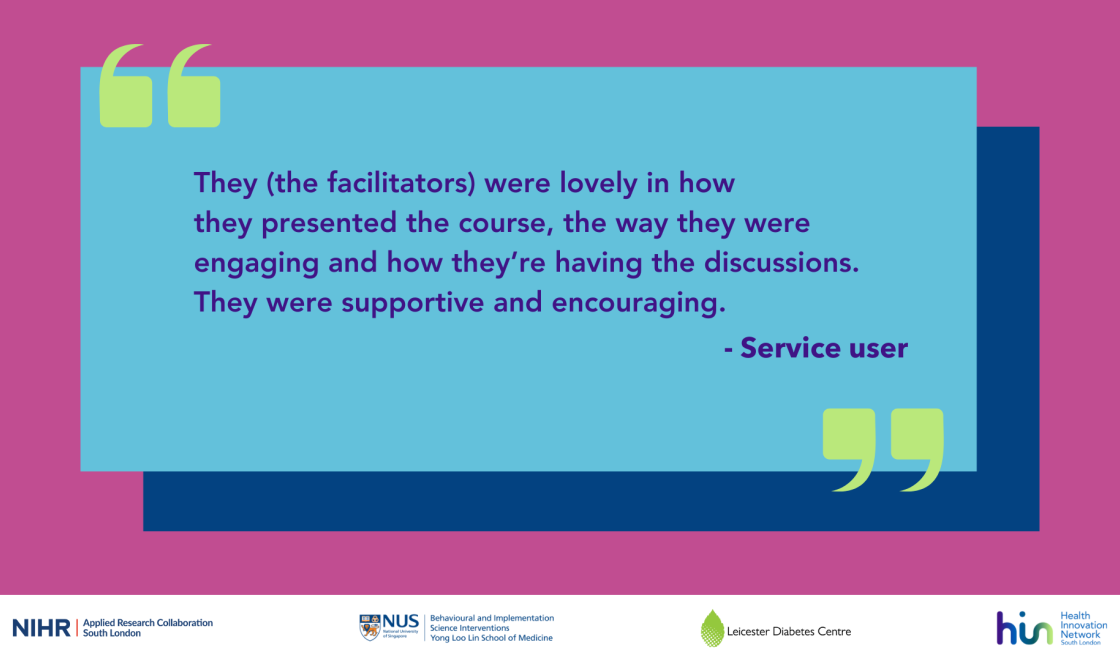Addressing health inequalities
HEAL-D Online was developed to address significant health inequalities. In the UK, people from African and Caribbean backgrounds are 3 times more likely to develop type 2 diabetes than White Europeans, typically developing the condition 10 years earlier and experiencing poorer health outcomes. NHS self-management programmes, which have been shown to help people manage their diabetes, are less successful in people from African and Caribbean communities, with lower levels of participation and leading to little improvement in diabetes control.
To address this problem, public health and multimorbidity researchers at the ARC, led by Louise Goff, professor of nutrition sciences, Leicester Diabetes Centre, worked with the HIN to develop the HEAL-D programme. It was co-designed with people from African and Caribbean communities with lived experience of diabetes to provide culturally tailored advice that was engaging and meaningful for African and Caribbean adults.
Evaluating HEAL-D Online
The research team used a mixed-methods approach to evaluate HEAL-D Online, including analysing service activity records, service user questionnaires, observational data and interviews. In total, 53 service users completed a questionnaire after completing HEAL-D Online, and 14 service users and 7 service delivery staff were interviewed.
Key findings included:
- There was good uptake of HEAL-D Online, with 62% of people offered the programme attending their first session, compared with a national average of 8.2% for people offered a structured diabetes educational course
- Of service users who attended the first session, 77% completed the programme, indicating that they were engaged by the content. Qualitative findings showed that service users appreciated the convenience and flexibility of the online format
- Qualitative findings also showed that staff and service users were satisfied with all aspects of course delivery
- Observation showed that staff could deliver key elements of HEAL-D – the educational sessions, exercise class and cooking workshop – as intended using a digital platform
- The programme also showed potential benefits in improving understanding of diet, knowledge of diabetes management and encouraging behavioural changes leading to weight reduction and improved blood glucose levels. Of the 32 service users asked, 78% reported weight loss following the HEAL-D programme and 72% noticed a reduction in waist measurement. A decrease in diabetes-related emotional distress was also observed.
